How much does a gaming setup cost is a question most beginners ask when trying to build a PC. A typical PC will cost you between $900 to $1200 while a high-end PC that allows you to get 60+ frames per second will cost even more.
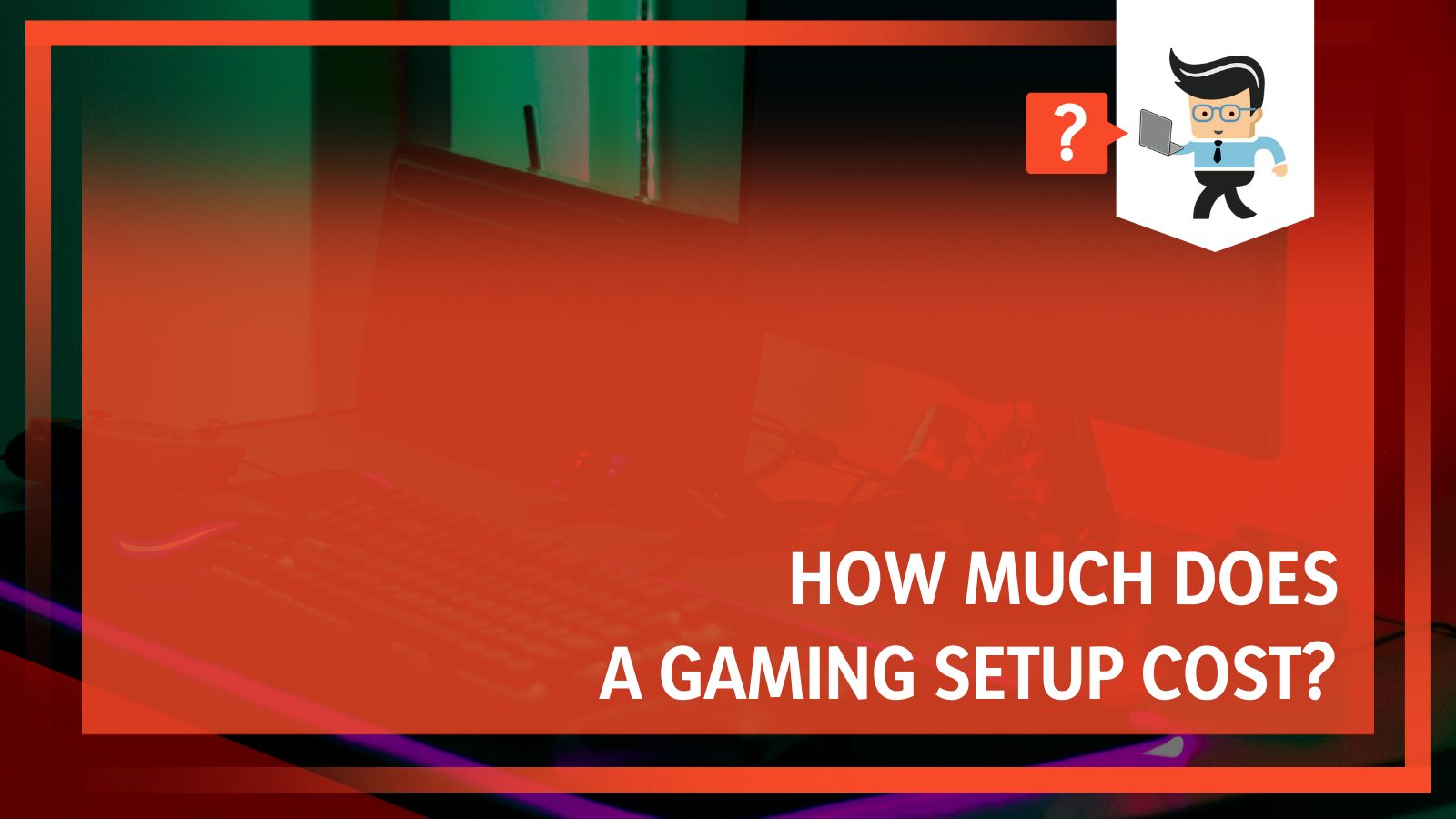
Defining your budget is one of the most important factors you need to consider when building a PC as it helps you determine the kind of PC you need to build as well as what parts and accessories to buy.
In this guide, we’ll be taking a look at the necessary parts of a gaming PC, the prices they’re likely to sell for, as well as what each type of PC would cost.
Contents
How Much Does a Gaming Setup Cost?
A gaming setup can cost anywhere from $900 to as much as you can spend, depending on how decked out you want your PC to be. If your ultimate goal is to play high-end games at the highest settings possible, you’ll be forking out at least $2,000 from your wallet.
– Why You Should Have a Definite Budget
The budget you allocate to your gaming setup will have a significant effect on the kind of parts, components, and accessories you’ll have access to. This means that your system’s features will be impacted based on the amount you’re willing to spend.
A couple of years ago, building a budget PC would have cost around 400 to 500 bucks. But thanks to inflation and the rise in raw material and GPU prices, you’re sure to spend way beyond that to get an ideal budget build.
For those who would like to build their own gaming PC, you can cut the cost down to $1500 for a high-end rig, depending on whether or not you’d like to get extra accessories such as a monitor, power supply, gaming mouse, and high-end CPU coolers.
The money you spend on building a PC can be categorized into three main areas: high-end, mid-range, and budget. These three categories can be controversial among different PC builders and enthusiasts so we’ve created a table below to help you understand the average cost of each category.
| Computer Category | Prospective Spend | Likely CPU to be Utilized |
| High-end PC | Over 2000 bucks | Intel Core i7, i9 or AMD Ryzen 7 or 9 |
| Mid-range PC | $1000 to $2000 | Intel Core i5 or AMD Ryzen 5 |
| Budget PC | $600 to $1000 | Intel Core i3 or AMD Ryzen 3 |
– Budget PC Breakdown
If you’re looking at building a budget gaming PC, the AMD Ryzen 3 or the Core i3 processors are what you would want to work with. These processors, especially the newer generations such as Intel’s 12th Gen chips, feature a huge amount of power.
The goal of buying a processor is to get one that neither costs too much nor causes bottlenecks for your graphical unit. This way, you’ll be able to get the ideal parts while saving money that can be used to purchase other components. With $600 to $1000, you’ll be able to get a solid PC for good 1080P gaming.
– Mid-range PC Breakdown
An Intel Core i5 or AMD’s Ryzen 5 is the most ideal processor in this category. With these processors, you’ll be able to use your PC for other tasks such as rendering or video editing. You can even take it up a notch and work with a Ryzen 7 or Core i7, depending on where you stand on the budget scale.
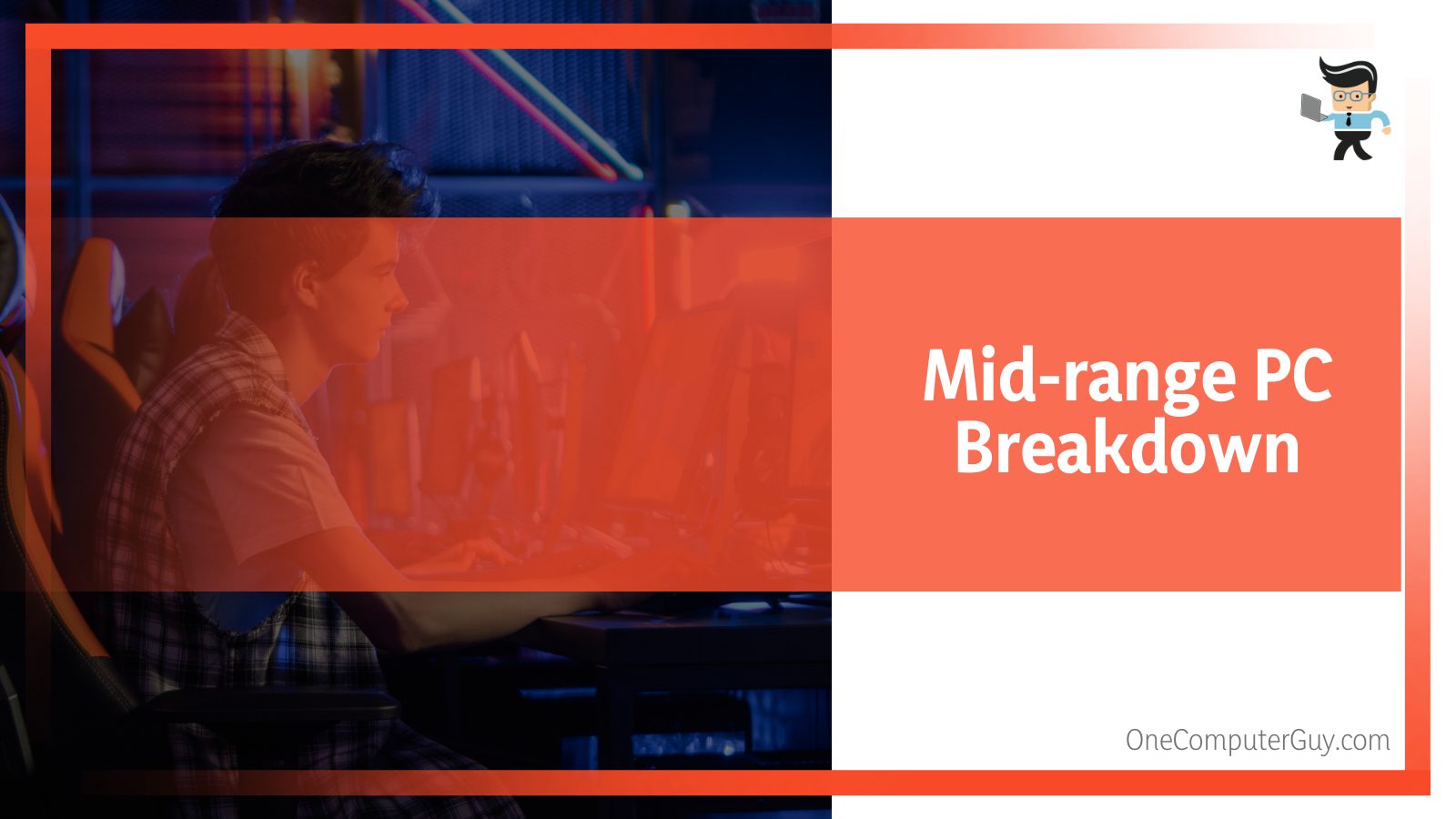
With 1000 to 2000 bucks, you should be able to build an excellent PC that comes with many extra features such as a built-in I/O shield, USB C, Wi-FI, RGB lights, RGB gaming mice, and multiple fans.
– High-end PC Breakdown
On the high-end side of things, you want to look at spending over 2,000 dollars. High-end PCs are often high-performance and decked-out systems that have the latest components and accessories such as case fans and gaming headsets.
There are no sacrifices required in this region as these computers tend to have the best of everything, including a new gen Core i9 processor, the best water cooling solution, gaming monitors, excellent PC cases, and more.
However, before you decide to build a high-end gaming PC, you should first consider what you want to use the PC for as having a high-end PC may not necessarily align with the kind of games or work you intend to do with your computer.
How Much Will It Cost to Prebuild a Gaming PC vs Build One Yourself?
Building your own PC will definitely cost less than purchasing a pre-built one, and the difference generally runs anywhere from $300 to $1,000. Because of this, many beginners get hung up on the right one to choose between these two options.
You don’t necessarily need to build your gaming PC from scratch. Getting a pre-built option provides you with options and safety.
– Pre-built PCs
While these PCs tend to be on the expensive side, retailers sometimes provide pre-built gaming PC builds at cheaper prices since they purchase PC parts in bulk, which often results in lower individual prices.
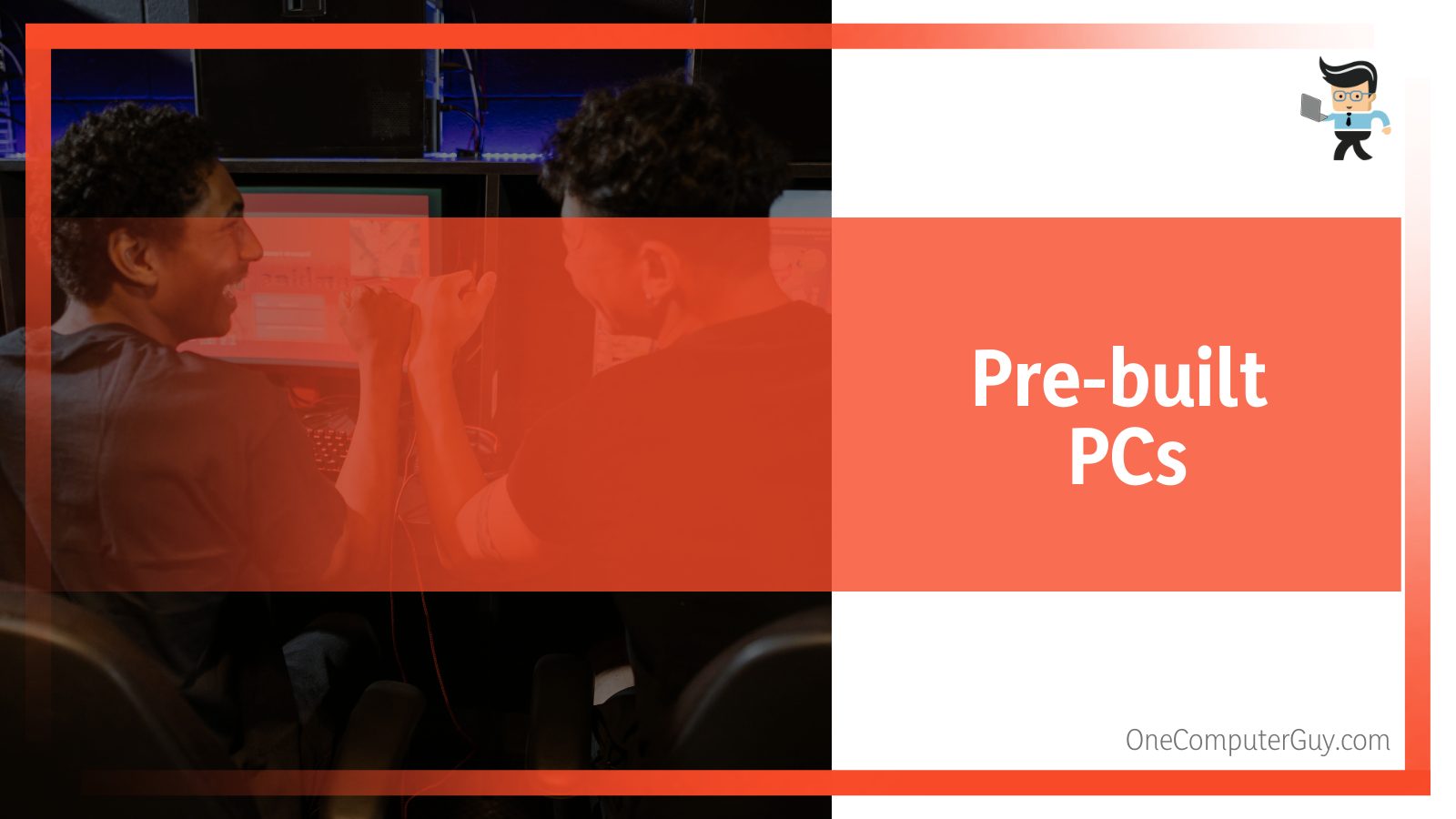
If you plan to buy prebuilt gaming PCs, you can choose options from NZXT, iBuyPower, CyberPower, Best Buy, and Alienware.
Here are some pros of buying a pre-built PC:
- You’ll have a professional do the work for you, which significantly reduces the chances of mistakes.
- It takes less time than having to set up a PC.
- It comes with all the necessary components and you don’t have to spend hours sourcing and bargaining for the right component.
Here is a con to remember:
- They tend to be more expensive than when you build your own.
– Building a PC
However, in most cases, building a PC yourself tends to be cheaper. The reason is that you know what you need and the parts to purchase.
You’ll be in charge of deciding your PC’s quality and functionality and will take responsibility for any issues that may happen during and after the building process. Also, building your own PC allows you to quickly get familiar with how to build a PC, bargain, and source for components.
Here are some pros of building your own rig:
- Doing this provides you with experience in sourcing and bargaining for components and accessories.
- You get a better understanding of how each component, accessory, and software works.
- It’s often cheaper.
Now here is a disadvantage to keep in mind:
- There’s a chance that you’ll make a mistake, which can result in all of your components going haywire.
– Choosing Between Prebuilt and Building Your Own PC
The ideal thing to do here is to consider the prices of both options. If you’re on a budget and your goal is to save as much money as you can, search for a pre-built PC that matches what you want. Make a list of the components in the PC and search for the prices of each individual component.
If the total of each component turns out to be cheaper than the cost of the prebuilt PC, then you can consider buying the parts and building the computer yourself.
However, if you have no budget constraints, would like to decrease the chances of making a costly mistake, and would like to get your hands on your rig as soon as possible, you may want to consider getting a prebuilt PC from the brands mentioned above.
What Are the Purposes of a System That Can Affect the Cost?
There are two main categories of PC builders that will greatly affect the cost of the setup: those who want to build for gaming and other tasks and those who are building for gaming only. The purpose you want your gaming PC to serve is another factor that contributes to the amount of money you’d spend on it.
– Gaming-Only Systems
If you’re building a gaming-only PC, the type of games you intend to play and the frame rates you intend to reach will influence the components you purchase for your PC.
While you can go for newer and more recent components with better software and architecture, many older cards and processors can still attain decent frame rates while playing modern game titles.
For instance, while NVIDIA’s new DLSS technology can provide your games with a significant boost, you’ll need to spend a ton of cash to get it as this tech is only available on the GeForce RTX 2000 and 3000 series graphics units.
On the other hand, you can decide to work with AMD’s Fidelity FX Super Resolution technology that offers decent competition to the DLSS while spending less than you would on NVIDIA’s cards.
– Choosing the Right GPU
Irrespective of the architecture you decide to use, frame rates and resolutions are top priorities in gaming and they’re sure to affect your PC gaming setup.
If you’re content with getting about 60 frames per second while doing 1080p gaming, you can consider getting GPUs like the 6650XT or the RTX 3050. These cards are in the mid-range category and will easily provide you with up to 60fps on AAA titles like Halo Infinite and Valorant.
If your goal is 4K or 1440P gaming, then you’ll want to splurge a little more on GPUs and other components. Getting a card like the RTX 3060Ti will do well for 1440P gaming while convenient 4K gaming will require the RTX 3070 GPU or higher.
While the prices of these GPUs may have gone down from when they were launched, the addition of other components such as RAM and CPU is sure to make the overall price go up even higher.
– Gaming and Workstation Systems
If you plan to use your gaming PC for other tasks such as CAD work, rendering, or video editing, you’ll have to purchase even more powerful components.
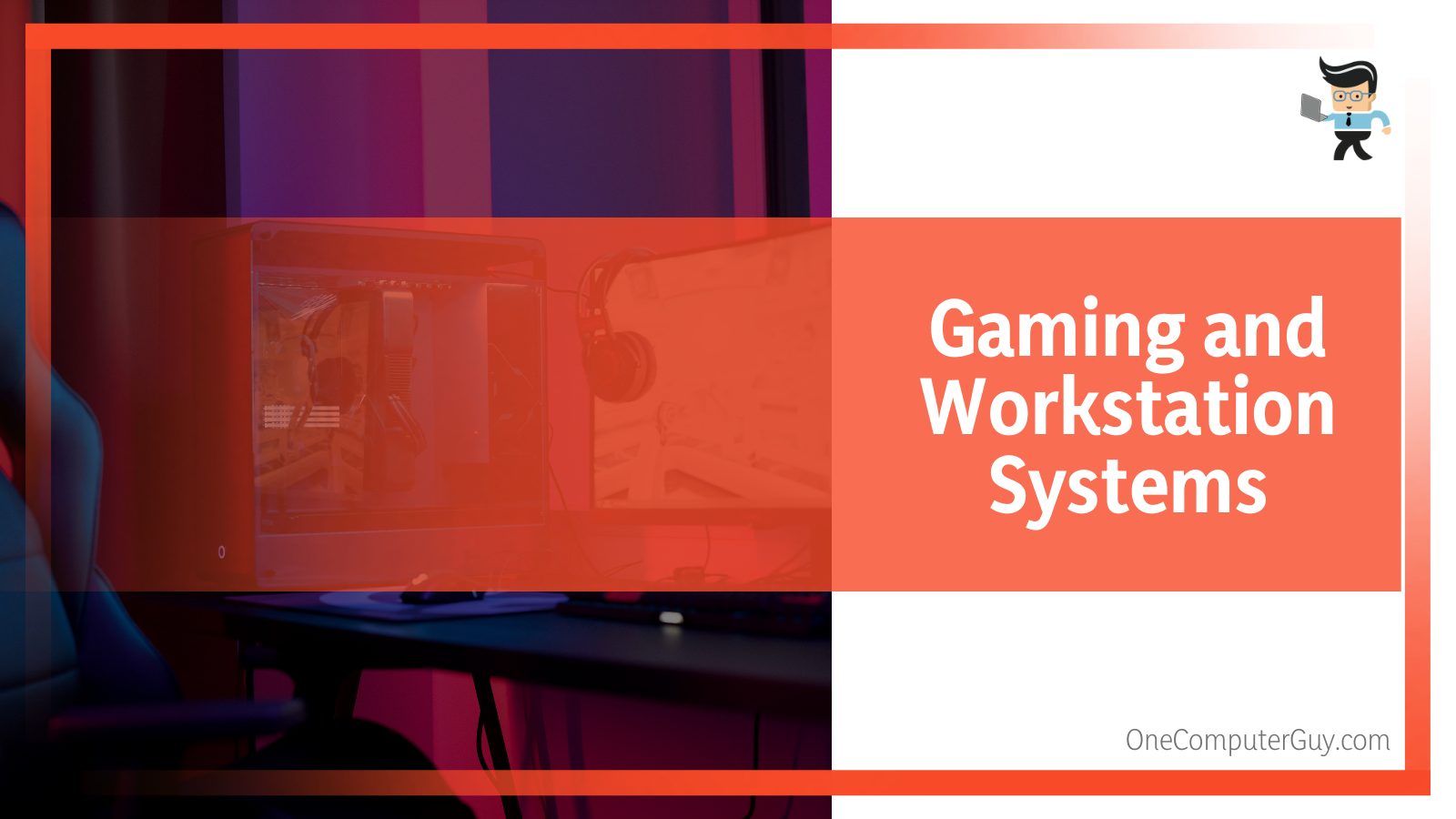
The reason is that the applications you’ll be using such as the DaVinci Resolve, Premiere Pro, and Cinbench R23 will consume a lot of GPU, RAM, and CPU power. The more computing power you’re able to get, the better the rendering and playback speed you’ll enjoy.
Cards like the Intel Xeon and AMD Threadripper lineups are what you want to work with. Take note that different workstations will require different components, depending on the exact task you’re looking to do.
However, you should expect to spend at least $1,000 to get a decent workstation system that’s ideal for gaming as well. You want to consider upgradeability here as you’ll eventually need to continue upgrading your system’s specs.
How Do You Reduce Your System Cost?
There are many ways to make sure you don’t overspend when building a PC such as buying cheaper motherboards and secondhand GPUs and choosing the right memory capacity you’ll need.
It can be a huge amount of money to drop all at once, so make sure you are getting the most out of your purchases. Here are some helpful tips that are sure to help you reduce costs.
– Purchase Cheaper Motherboards
Every new generation CPU comes with newer motherboards. Each of these motherboards will come with different features and oftentimes, the older motherboards become cheaper.
You can opt for these cheaper options instead of going with the newest model available, thereby saving money that can be used on other aspects of your build. While there may be newer features on the new set of motherboards, the older versions are sure to provide you with enough features for your gaming.
Simply consider the features of the CPU you want to use and compare it with different new and older motherboards to make sure you’re not losing out on much.
If the difference between your motherboard selection is features that are only present on the newer models, then you can opt for the older option since those new features won’t take off immediately.
– Buy a Used or Older GPU or CPU
Another good way to save money on a gaming setup is to buy older processors and graphics units. While the newer 12th gen CPUs are sure to be impressive, you don’t necessarily need the latest CPUs to play 1080P or even 4K games at decent framerates.
The same applies to graphics cards as well; while technologies like DLSS are impressive, they are not really needed for gameplay. Therefore, you can consider getting an older processor and graphics card that’s cheaper and does a great job.
– Be Versatile With Storage Options
Storage is one area where you can get stumped when building a PC, especially if you plan to save many games. It’s no news that SSDs are faster, more compact, and better than HDDs.
However, they are pricier as well. You can choose to be versatile in this section by purchasing an SSD for your system and an HDD to save your game files, media, and other content.
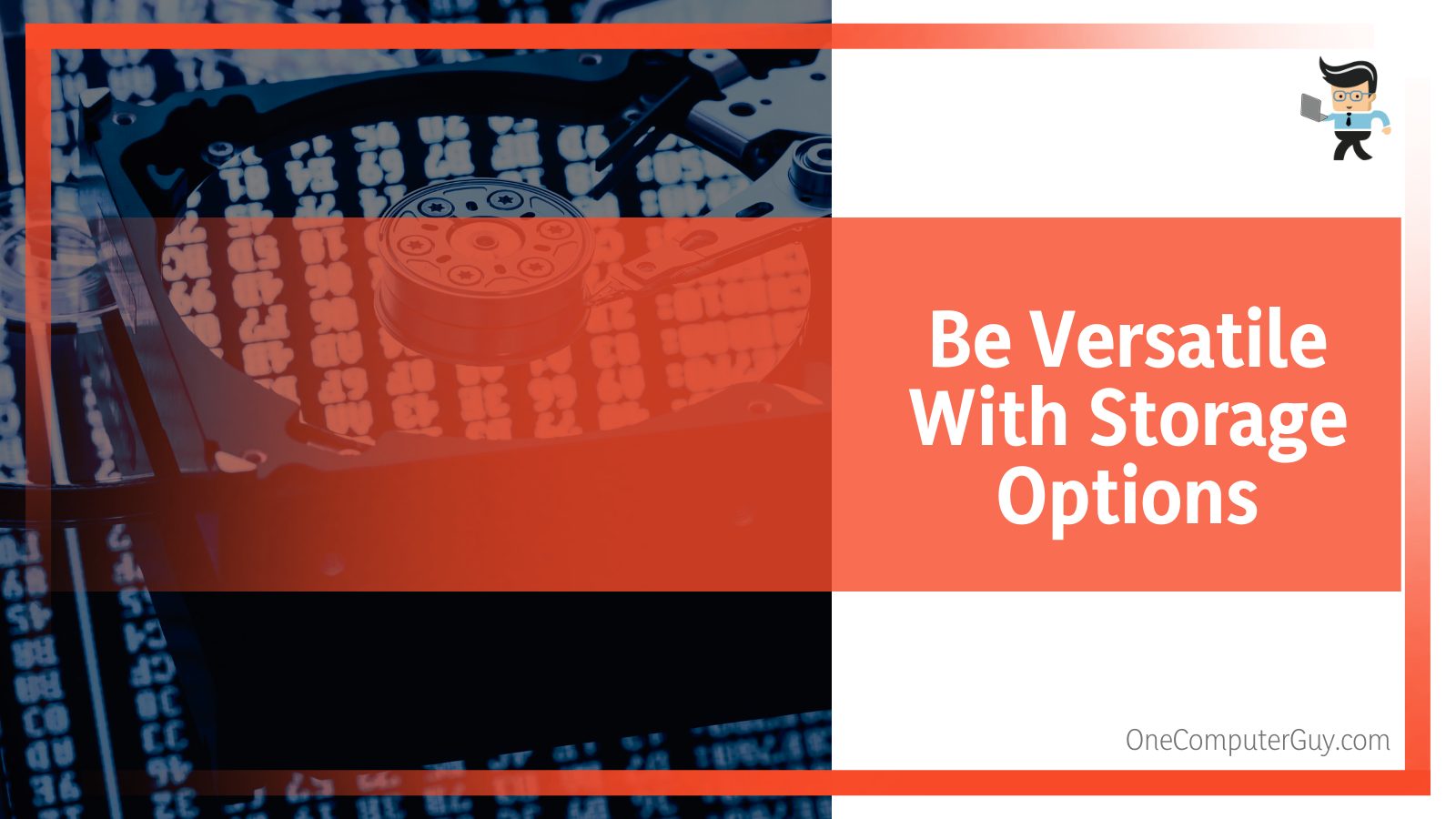
Doing this can help minimize the budget you’d spend on storage devices as you won’t have to buy an expensive and massive SSD. Alternatively, you can consider buying 2.5-inch SATA SSDs for storage if HDDs aren’t to your liking. Take note that you’re likely to miss out on speed, but you’re also going to save yourself some cost.
– Choose the Right Memory
DDR4 RAMs have been around for over six years and many gamers swear by them. However, the DDR5 was recently developed and it comes with better DIMMs capacity and faster speeds. If you’re not building a high-end performance PC, we recommend that you stick with DDR4 RAMs as they are cheaper than the DDR5, which is still in its infancy.
Also, DDR4 memory sticks still offer excellent speeds that are sure to be useful for years to come so there’s no point in diving into the DDR5 world if you’re not building a performance setup.
Conclusion
As you can see from our discussion above, there’s no one way to decide the specific amount you need to build a PC.
Getting the right budget for a gaming setup depends on many factors, and here’s a quick summary to help you keep the important points in mind:
- Use a Core i3 or Ryzen 3 series CPU if you want a budget build.
- Core i5 or Ryzen 5 CPUs are excellent for mid-range builds while core i7 and i9 processors are perfect for high-end rigs.
- You should expect to spend up to $900 if you’re looking to get the ideal mid-range build.
- Pre-built PCs tend to be more expensive than self-made PCs but they are safer and easy to set up.
- Your PC budget depends on the kind of games you want to play as well as whether or not you’ll be using the computer for other tasks.
Once you’ve decided to build your PC, you want to consider the games you’ll play, the frame rates you intend to get, as well as the additional accessories and aesthetics you want your PC to have.
To make things easier, you can search for pre-built PCs that match your requirements, make a list of their parts, and check their prices to see if it’ll be worth building the PC yourself or getting a pre-built version instead.







